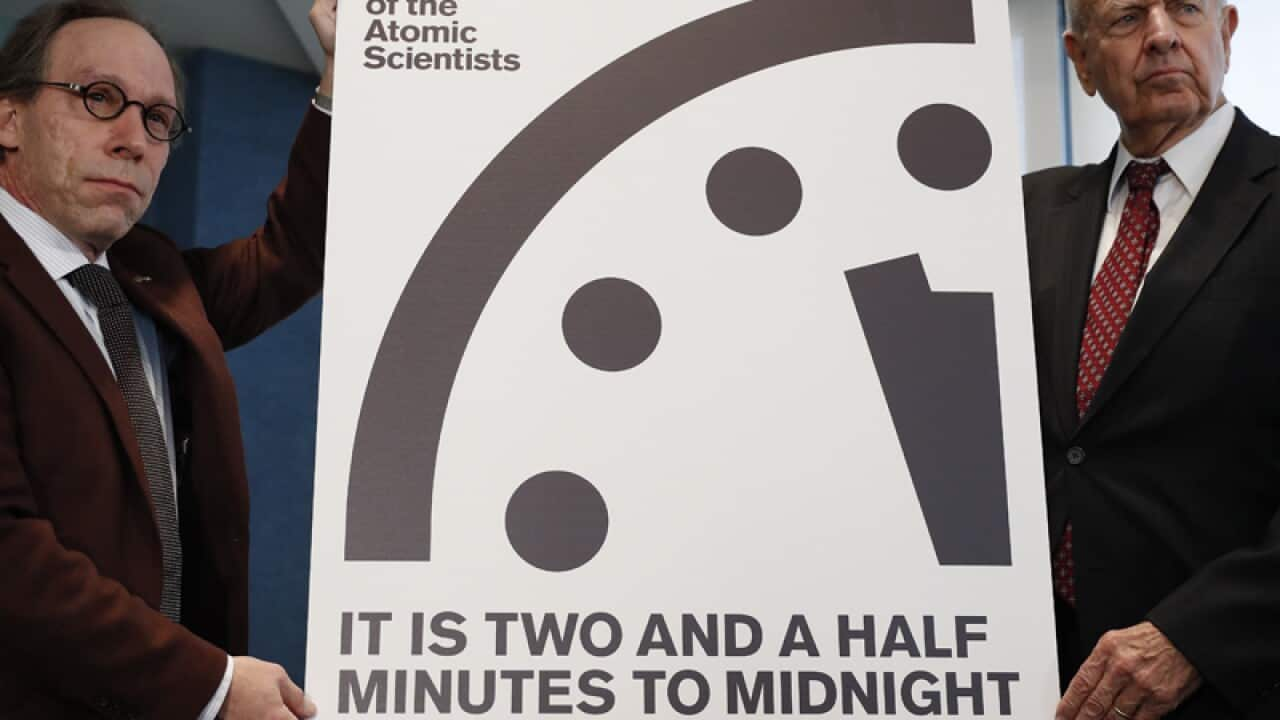Atomic scientists reset their symbolic "Doomsday Clock" to its closest time to midnight in 64 years, saying the world was closer to catastrophe due to threats such as nuclear weapons, climate change and Donald Trump's election as US president.
The timepiece, devised by the Chicago-based Bulletin of the Atomic Scientists and displayed on its website, is widely viewed as an indicator of the world's vulnerability to disaster.
Its hands were moved on Thursday to two minutes and 30 seconds to midnight, from three minutes.
"The Doomsday Clock is closer to midnight than it's ever been in the lifetime of almost everyone in this room," Lawrence Krauss, the bulletin's chair, told a news conference in Washington.
The clock was last set this close to midnight in 1953, marking the start of the nuclear arms race between the United States and the Soviet Union. Thursday's reset was the first since 2015.
Krauss, a theoretical physicist, said Trump and Russian counterpart Vladimir Putin carried a large share of the blame for the heightened threat.
The bulletin cited nuclear volatility, especially as the United States and Russia seek to modernise their atomic arsenals and remain at odds in war-torn countries such as Syria and Ukraine.
Trump has suggested South Korea and Japan could acquire nuclear weapons to compete with North Korea, which has conducted nuclear tests. Trump has also raised doubts about the future of a multilateral nuclear pact with Iran.
Chinese aid to Pakistan in the nuclear weapons field, as well as the expansion of India and Pakistan's nuclear arsenals, were also worrisome, the bulletin said in a statement.
The climate change outlook was somewhat less dismal, "but only somewhat".
While nations had taken actions to combat climate change, the bulletin noted, there appeared to be little appetite for additional cuts to carbon dioxide emissions.
It said the Trump administration nominees raise the possibility the government will be "openly hostile to progress toward even the most modest efforts to avert catastrophic climate disruption".
The world also faces cyber threats, the bulletin said. US intelligence agencies' conclusion that Russia intervened in the presidential election to help Trump raised the possibility of similar attacks on other democracies, it said.
The bulletin was founded by scientists who helped develop the United States' first atomic weapons. Its Science and Security Board decides on the clock's hands in consultation with its Board of Sponsors, which includes Nobel laureates.

